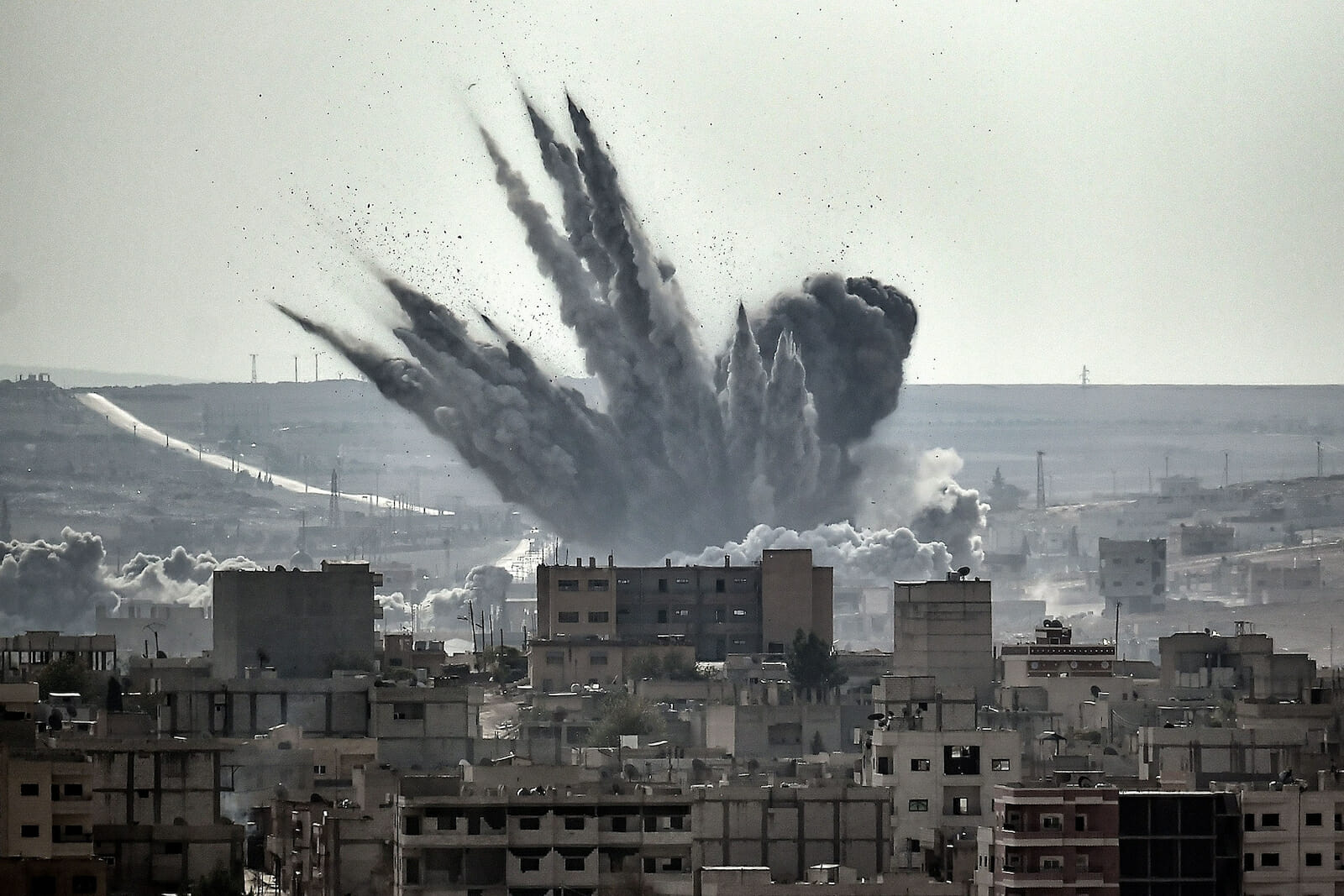
Regime Change in Syria is a Myth
The overriding question is how will the U.S. clearly define moderate opposition groups operating in Syria? That has become a major difficulty as well in Libya. Rebel groups break down into tribes, clans, and broader religious factions—some with fundamentalist beliefs, while others have a more radical interpretation of Islam which includes armed jihad. In any event, we do not know their ultimate goals. A Muslim diplomat once told me it is difficult to know the mission of a person carrying a weapon: “When they come, they also bring their behavior with them. There is one baggage that doesn’t weigh much–it is the behavior that is inside of them–the behavior in their mind–the attitude that they have. We can search their pockets for weapons–and see the ones on their shoulders–but we cannot search their mind.”
Syria over the last three years has been in a chaotic civil war in which no one has clearly defined the “moderate” opposition that could rule democratically if we take out President Bashar al-Assad. I have written articles suggesting, “regime change without an endgame plan is fraught with disaster,” as we witnessed in Libya after the U.S.-NATO incursion in 2011 that led to the downfall of the ruler Col. Muammar Gadhafi. Armed Islamist militias have since taken over large swaths of the country.
The Senate Armed Services Committee last week passed the National Defense Authorization Act that authorizes military training and equipping of Syrian opposition forces. Which forces are they referring to?
Senator Mike Lee (R. Utah) was the only one on the committee to vote against the initiative—a brave move. The Obama administration has clandestinely been providing arms to the rebel forces, facilitated by Arab nation allies. However most of the weapons have ended up in suspect hands–Islamists affiliated with al-Qaeda—such as al-Nusra Front, al-Qaeda in the Arabian Peninsula, Islamic State of Iraq and the Levant, Ahrar al-Sham and up to sixty other splinter insurgent groups.
Many villages are now controlled by these groups. So who are we planning to train? We have had a history of training moderate rebel groups that turned against us in Afghanistan and Iraq. Who will be our medical advisor to determine what is in their minds? I would opt for a more political solution, or the rebels we train will end up fighting alongside al-Qaeda at some point—since there is no clear vetting process.
Senator Lee appropriately noted, “The situation in Syria is desperate, and we should be constantly assessing it for threats to U.S. security, but I am concerned that sending American weapons and training into this crisis could be like pouring gas on a fire.” The news media validated the conundrum on-going in Libya noting, “Militia fighters stole hundreds of American-supplied automatic weapons and other equipment in a raid…where the U.S. was training local forces (AFP), and “Gunmen attacked the home of Libya’s new premier [third this year].” In response to these concerns, President Barack Obama instructed that naval ships be stationed off the coast of Libya in case the U.S. embassy in Tripoli needs to be evacuated.
The al-Qaeda affiliate in Libya, Ansar al-Shariah has vowed to attack American interests for our support of former Libyan General Khalifa Haftar, who independently launched airstrikes recently against the February 17 Martyrs Brigade in Benghazi—the same group that had been hired to protect the U.S. consulate that was attacked by Islamists, wherein four Americans were killed, including U.S. Ambassador J. Christopher Stevens. The general has been accused of being an “American agent.” Escalating attacks by Ansar al-Shariah Islamists, in neighboring Tunisia, this week also killed four police officers when they attacked a government minister’s home.
Chaos continues three years after the U.S.-NATO led incursion into Libya to depose Col. Muammar Gadhafi–without an endgame plan. The allies wanted to get rid of the dictator who had been a thorn in their side for many years. However, no leader has surfaced from all of the rebel groups who could rule democratically. The same will hold true in Syria, a tribal society, where it will be almost impossible to find a leader who can rule justly without having to exert dictatorial powers to survive. The tribal hierarchy will trump free, fair and transparent elections.
Egypt was another example where the Western powers wanted to depose the dictator, General Hosni Mubarak who had for over thirty years been a U.S. ally–honoring the 1979 Israeli Peace Accord–and protected our unimpeded access to the Suez Canal. But that was not good enough, so the U.S. coached the Muslim Brotherhood’s candidate Mohamed Morsi on how to win an election. We should have realized that Morsi’s goal was to create an Islamic state ruled under Sharia law. As it turned out he lasted only one year before moderates and secular military officers ousted him. The Obama administration did not understand the mission of the Muslim Brotherhood, which has been to turn Egypt into an Islamic state since its founding in 1928.
President Obama is struggling with pressure from congressional leaders wanting to supply military assistance to “select” opposition rebel forces in Syria. Security and military advisors are not sure who the moderate opposition groups really are—or a leader that could unify the country, without differing religious and ethnic groups becoming further victims. It is not an easy decision–to satisfy the political hawks—to depose President al-Assad. In ousting Col. Gadhafi in Libya his Warfalla minority tribe was slaughtered. This same fate awaits Mr. al-Assad’s minority Alawite tribe.
In authorizing the U.S. military involvement in Syria Mr. Obama needs to understand there are thousands of al-Qaeda affiliated Islamists fighting there, including dozens—possibly hundreds—of American jihadists fighting alongside. Together they are attacking both the Syrian government and rebel forces. The populous is now beginning to experience a new type of attacks–suicide bombings by the trained American jihadists. Ousting Mr. al-Assad will not bring about the democratic institutions envisioned by the U.S.–only further the destabilization of Syria—joining Libya, Tunisia, Egypt, and nearby Yemen, all subject to never-ending chaos.
The U.S. has a poor track record of success in regime change in North Africa and the Middle East. Clandestinely supplying armaments to the “right” rebels has not been any better. Protecting American interests has also failed, as we witnessed in the numerous on-going attacks. If the U.S. wants to make a difference, we need to institute a more believable foreign policy—as the global leader—and that regime change should not be at the top of the list. We cannot take-on every dictator we disagree with, nor can we police over half the world. We need to focus more on the Global War on Terror—which is a growing concern. The global extremist Islamic movement has expanded since the death of Osama bin Laden–and if not curbed could eventually reach our doorstep again.

